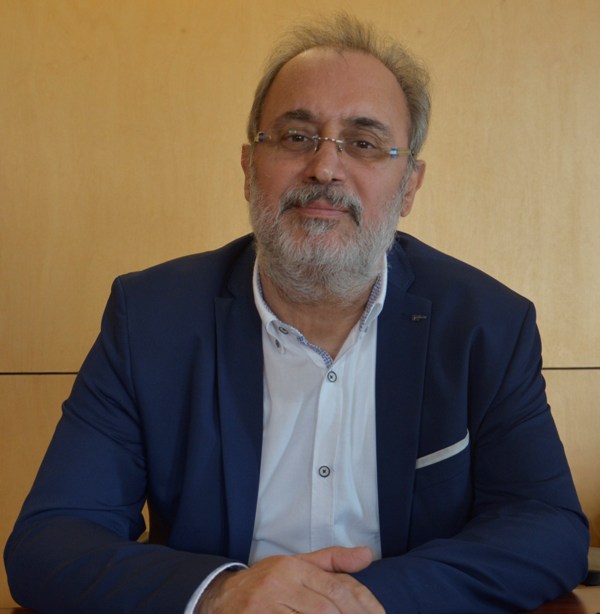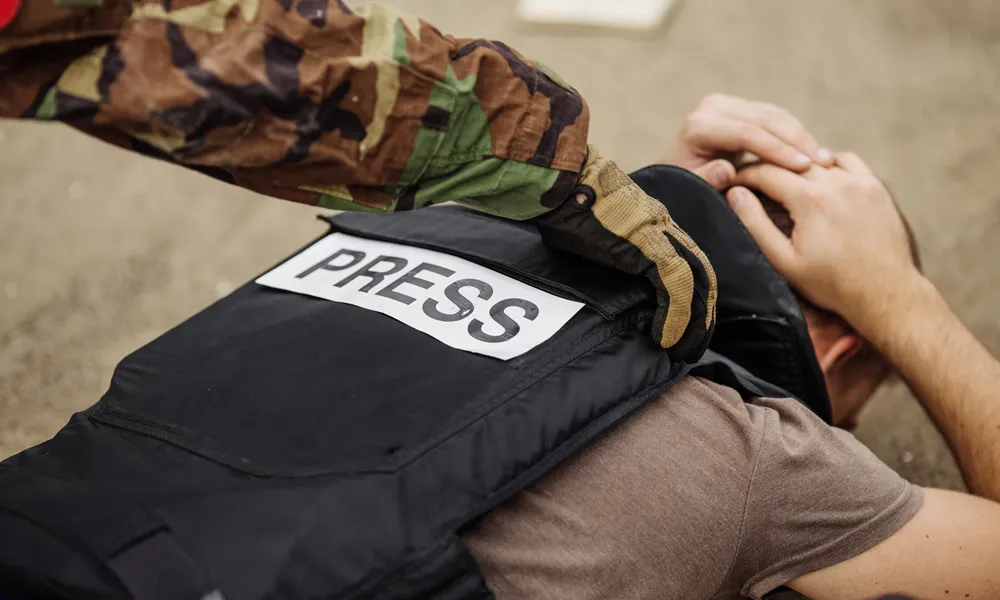Truth under siege
In a world where journalists continue to be killed for the truths they bring to light, impunity for crimes against them remains a wound that erodes democracy and freedom of information. On the occasion of the International Day to End Impunity for Crimes Against Journalists on November 2, Giorgos Frangos, President of the Cyprus Union of Journalists, speaks about the challenges journalists face, both in conflict zones abroad and at home, and about the ethical duty that accompanies the profession. This interview highlights the importance of freedom, safety, and independence for journalists, emphasizes solidarity with colleagues who risk their lives to deliver the truth, and reminds us that even Cypriot journalists are not immune, as they often face threats and pressures while carrying out their work.

in journalistic blood, says Giorgos Frangos,
President of Cyprus Union of Journalists.
Journalism always stands with the truth
What does it mean to be a journalist today in a world where truth itself is under attack?
Journalism has always faced great challenges, and it will continue to do so. There will always be journalism that serves the public interest, holding accountable every center of power, every ruler, and every form of authority. Truth is attacked because it is inherently revolutionary and anti-authoritarian. Alongside truth, rigorous investigative journalism, as its carrier, is also under attack.
Being a journalist today is harder than ever before. Beyond facing authorities, one must confront false news, herd behavior on the internet, and manipulation by the powerful, both political and economic actors.
The ‘press’ vests become targets
Did the deaths of journalists in Gaza provoke outrage, or has the international public become numb?
Journalists who lost their lives in Gaza outnumber all war correspondents killed in both World Wars combined. In just two years, we mourned more than 225 colleagues. Their deaths were not collateral, they were the result of targeted attacks.
The blue vests marked ‘Press’, instead of serving as protection, became targets, through missiles, rockets, drones, and other military means. The global journalism community did not remain passive. Truth will always reach the public, even if soaked in journalistic blood. No sacrifice is wasted. But this bloodshed must stop.
No human life should be lost
Are we living in a new ‘normal’ where journalists are killed?
There are international conventions and clear provisions in the United Nations charter for the protection and safety of journalists covering conflict zones. The ‘Press’ sign is equivalent to the symbols of the Red Cross and Red Crescent.
In the modern era, there has never been a war without journalists being killed. They were killed in Vietnam, Afghanistan, the Russo-Ukrainian front, and elsewhere. But we cannot accept this as the ‘new normal’. Journalists are not just casualties; they are murdered even in peacetime. Just recall Daphne Caruana Galizia in Malta and Giorgos Karaivaz in Greece. The killing of journalists is a crime and must be addressed as such.
Cypriot journalists are not immune
What lessons can we learn from colleagues working in conflict zones?
Cypriot journalists may not face the same dangers, but we can understand and empathise with them. Often, they face threats, harassment, and intimidation when covering subjects that ‘should not be touched’.
The greatest asset for the global journalistic community is the safety, freedom, and independence of its members. These must be safeguarded at all costs. Our solidarity with colleagues operating under such conditions is constant. The Cyprus Union of Journalists has sent financial aid to Ukrainian and Palestinian journalists, modestly and quietly, based on our capabilities.
Journalists’ lives do not return
How can we redefine support for journalists at risk?
Journalists have families, children, spouses. When journalists lose their lives, journalistic organizations assume their responsibilities. Beyond that, states must also take responsibility. But human lives do not come back. Protecting them is not optional, it is both a duty and a moral obligation.
